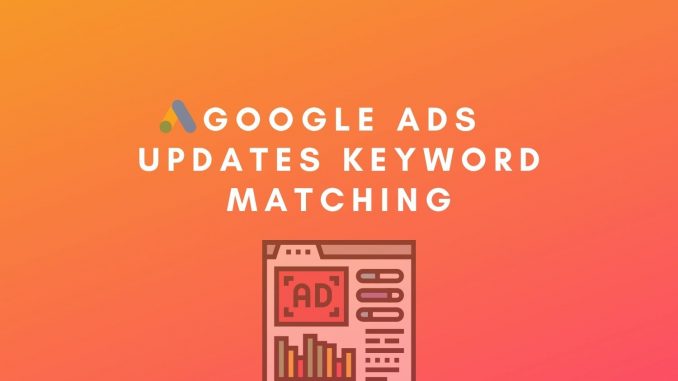
Google Ads has updated the way it matches keywords to search queries. In the announcement, Google has provided new details on how keyword matching works when a search is identical to a given keyword as well as when a search is not identical to any of the keywords present in an ad.
The update is not completely new. Google has put much effort over the years into understanding the intent behind each search, especially for long, complex search queries.
The introduction of BERT in 2019 brought a deeper understanding of the nuances and the context of words in searches. Significant improvements have been made to the way search queries are now being interpreted, and Google has greatly improved its ability to understand the why behind a query.
The good news is that the same technology is now being used for Google Ads to match every search with the most relevant keyword in an ad group.
How Does BERT Fit Into The Picture?
Google uses BERT to better discern the context of words in search queries and match relevant keywords to those queries.
BERT technology has proved to be particularly useful for broad match keywords. Google offers an example for a highly specific query like “1995 5 speed transmission seal input shaft” which can be matched with the broad match keyword “auto parts“.
The language understanding capabilities that BERT technology possesses enables Google to see they are related, even though there isn’t actually a keyword match between the query and the keyword.
Given that broad match keywords can match to a variety of searches, this technology offers more predictability in how keywords match.
What this essentially means is that broad match can be used to gain relevant, high-performing traffic using fewer keywords.
What Is The Change About?
In cases when multiple keywords were eligible to match with a search, the search engine would use Ad Rank to determine which keyword to deliver.
To avoid searches matching with keywords that are less relevant and ensure that the most relevant keyword is selected Google has made the following updates:
When Keywords Are Identical To The Query
In the announcement Google made earlier this year about simplifying match types in Google Ads, it mentioned that an exact match keyword that’s identical to a search query will always be preferred whenever that keyword is eligible to match.
The same rule applies to both broad match and phrase match.
Google offers an example with the search term ‘sushi delivery near me’ where there are two broad match keywords sushi delivery and sushi delivery near me. Previously, both of these keywords were eligible to match.
After the update, Google will give preference to the keyword sushi delivery near me because it is identical to the search term. Still, an eligible exact match keyword that is identical to the search query will be chosen over the phrase and broad match keyword.
Since both broad and phrase match keywords that are identical to a search term also receive priority, it makes no sense now to use the same keyword in multiple match types simply because broad match already covers the same queries.
When There Are No Keywords Identical To The Query
Before the update, in times when multiple relevant keywords were eligible to match, Ad Rank was used to determine which keyword to serve. Now, Google is taking relevance signals into account, in addition to Ad Rank. Relevance is mainly determined by looking at:
Google shared this table to show how keywords will be matched:
What Does It Mean For You?
The reasoning behind this Google Ads update is to ensure that your most relevant keywords are always prioritized. Google’s intention in that regard is to offer you more comfort and predictability when using broad match keywords.
Given that Google has recently expanded its search terms report to add more historical data for queries that received impressions but no clicks, more tools are now available to you that can be used to identify relevant keyword themes.
Also, for better control, Google recommends grouping your keywords into thematically consistent ad groups so that the ads will serve from the ad group you expect them to.
Essentially, adding BERT technologies to keyword matching ensures that ads get shown for more relevant searches.
Knowing how Google matches keywords can help you better configure your PPC campaigns and save time and money previously wasted on multiple match types.
By prioritizing the most relevant keyword for every search, ad creation and monitoring can now be simplified as well.

Leave a Reply